It’s a good day for rosé.
In fact, August is a perfect time to enjoy a glass of the pretty pink drink.
Last year, rosé sales in the U.S. grew 27% to $904 million, according to CGA Strategy by NielsenIQ, and sales were highest in summer. What makes this libation so popular in warmer months? Rosé is light and refreshing, and pairs well with barbecue and lighter fare.
Hey, if Barbie drank wine, this would probably be her pick. French rosés have long been the most popular, but many other countries are gaining market share. Rosés are made in several ways, but the most common is allowing the grape skin to stay in contact with the juice.
The most important difference between red and white wines in the wine-making process is red wines are fermented with the skins and seeds touching the juice, whereas white is not. This same process is used in making rosé but the maceration time is much shorter than with traditional reds.
If all this wine talk makes you want to crack open a bottle, then here are six rosés to try this month, as recommended by local wine experts.
VillaViva Rosé at Vino Cellars
We start our journey with VillaViva Rosé from Languedoc, France. This wine is 100% Carignan. Carignan is a red grape primarily produced in France (the most well-known come from southern France), Spain and Italy, and has often been used as a blending grape.
Being made with 100% of the grape is noteworthy because you get more of a chance to taste the true character of the grape. In the United States, to call a wine a Cabernet Sauvignon, it only has to contain 75% Cabernet Sauvignon grapes and the rest can be a blend; in other parts of the world, it is 85% (wine laws vary around the world).
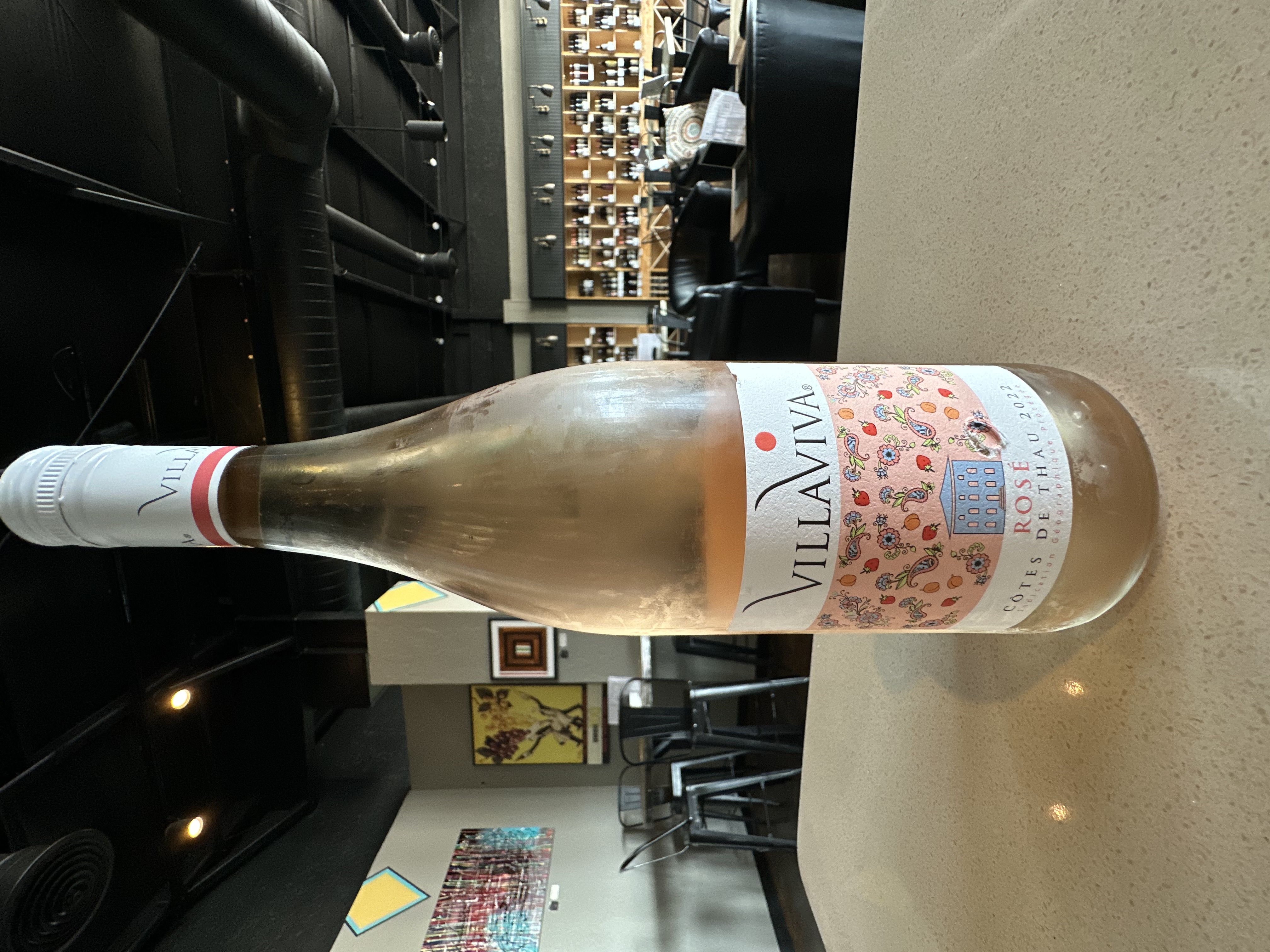
Matt Bekebrede, owner of Vino Cellars, said the wine has a beautiful pale pink color.
“It bursts with red fruits on the nose leading into luscious raspberry and strawberry notes on the palate, with a long lingering finish,” he said. “This rosé is the go-to on those hot summer days and pairs wonderfully with refreshing summer salads, barbecue ribs, or simply on its own.”
Vino Cellars is both a wine bar and a wine shop. They host a variety of wine tastings each month. He has a location in Springfield and one at Table Rock Lake, which his wife runs.
Cost: $17 a bottle
Find it: Vino Cellars, 2137 W. Republic Road, Springfield; 15038 MO-13, Reeds Spring; or visit Vino Cellars' website
Remy Saves the Sea at Brown Derby Wine Center & Marketplace
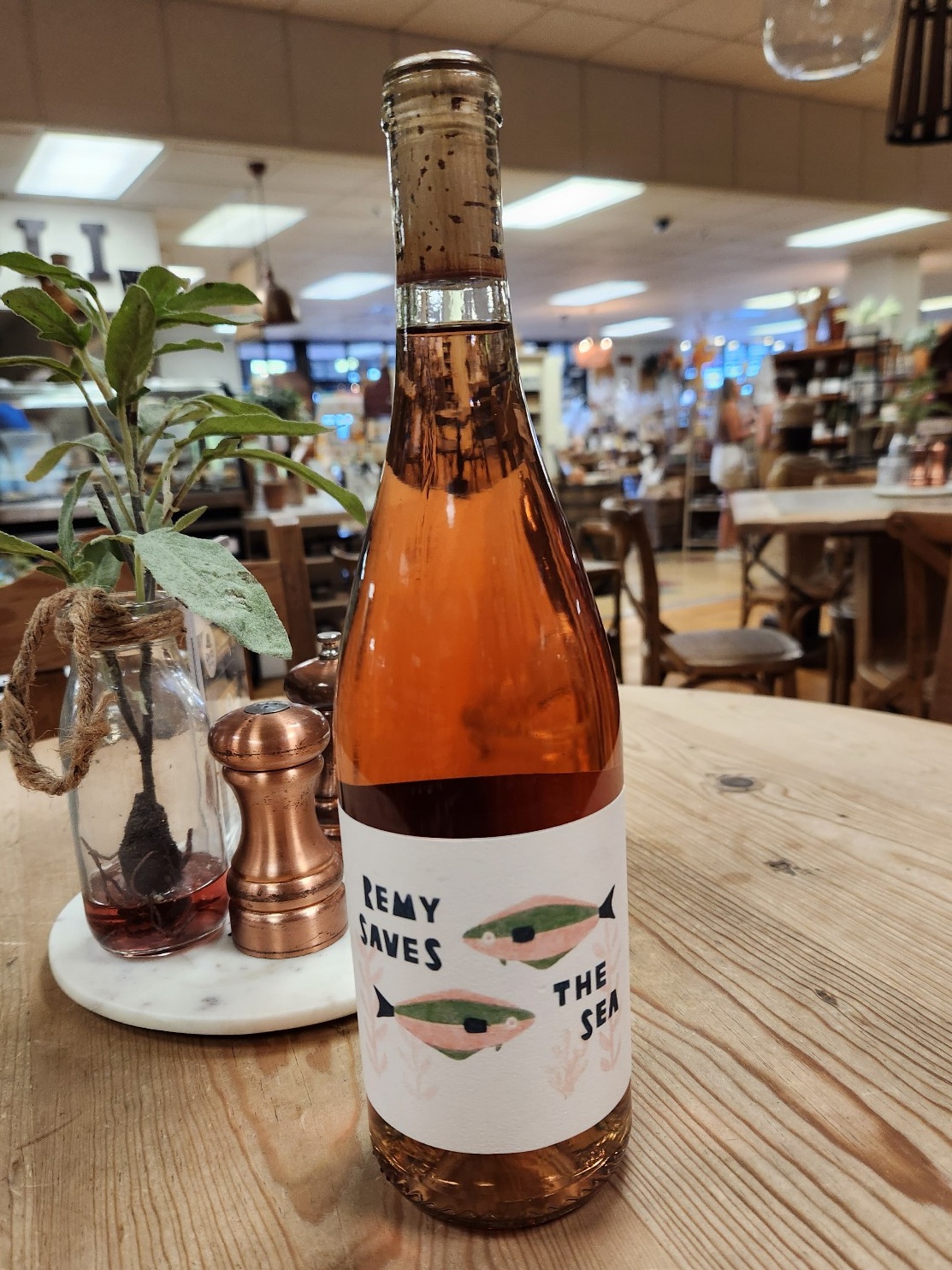
Want a wine with a local connection? Well, Clinton Chandler, wine specialist at Brown Derby Wine Center & Marketplace, has one for you.
It’s Remy Saves the Sea, and the winemaker is Noah Dorrance, who graduated from Kickapoo High School.
He was the original winemaker and co-founder of Banshee Wines and had a successful career, but then left to form his own label with his wife Kelly, a Houston, Missouri, native. She is a Drury University graduate.
They named their company Reeve Wines, after their son. This specific wine is named for their daughter Remy.
Remy Saves the Sea is a Sonoma rosé made with grenache, malbec and a touch of Chenin blanc. The grapes are sustainably farmed. Their vineyard is just outside Healdsburg, in Sonoma County.
“This is a light wine with a lot of strawberry and cherry notes,” Chandler said. “It’s dry, perfect for this kind of weather. Rosé is perfect with barbecue. That is another thing that makes them popular this time of year, they go well with any cookout. They are really food-friendly.”
Not only does it have all these feel-good, local connections, but Reeve Wines is also part of the 1% For the Planet, which are businesses that donate 1% of their venue to conservation efforts.
Cost: $24.99
Find it: Brown Derby Wine Center & Marketplace, 2023 S. Glenstone Ave., Springfield; or visit Brown Derby's website
Maison L’Envoye at Cellar + Plate
Sunshine Hubbard, owner of Cellar + Plate, recommends Maison L’Envoye.
This is a French rosé made from the Gamay grape. Gamay is a red grape that grows primarily in Beaujolais, a wine region near Burgundy. According to Wine Folly, it’s a cousin to pinot noir and Beaujolais produces 75% of this grape. It also grows well in Oregon and Australia.
“It is rumored that this winery transports this fickle grape at night because the cooler temps don’t disturb the grape,” Hubbard said. “This wine has a wonderful balance of acidity and juicy body. It pairs well with our spring peach salad or salmon with chimichurri.”
The salad is perfect for the August heat. Spring greens are topped with peaches, goat cheese, avocado, toasted almonds and red onion, and is served with a maple balsamic dressing.
Cellar + Plate is a wonderful wine bar. If you love brie, try their brie baked in puffed pastry with caramelized pears and pecans. It’s delectable. The sliders with bacon jam, Boursin cheese, caramelized onions and red wine reduction are incredible.
Cost: $11 per glass or $40 per bottle
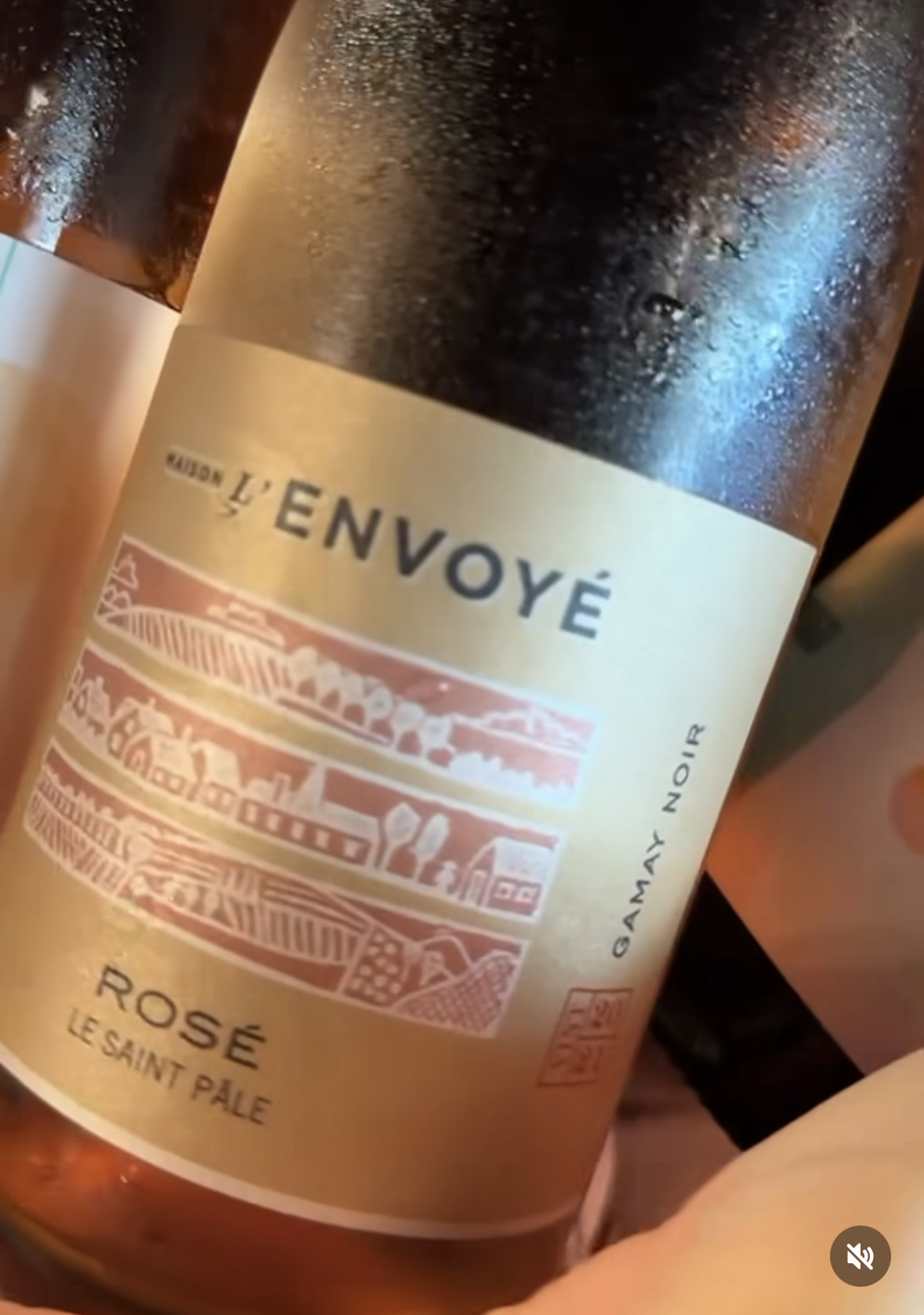
Find it: Cellar + Plate, 2916 S. Lone Pine Ave., Springfield; or visit Cellar + Plate's website
Curious at Macadoodles
Alex Jones, wine specialist at Macadoodles on Independence, recommends a Spanish variety named Curious.
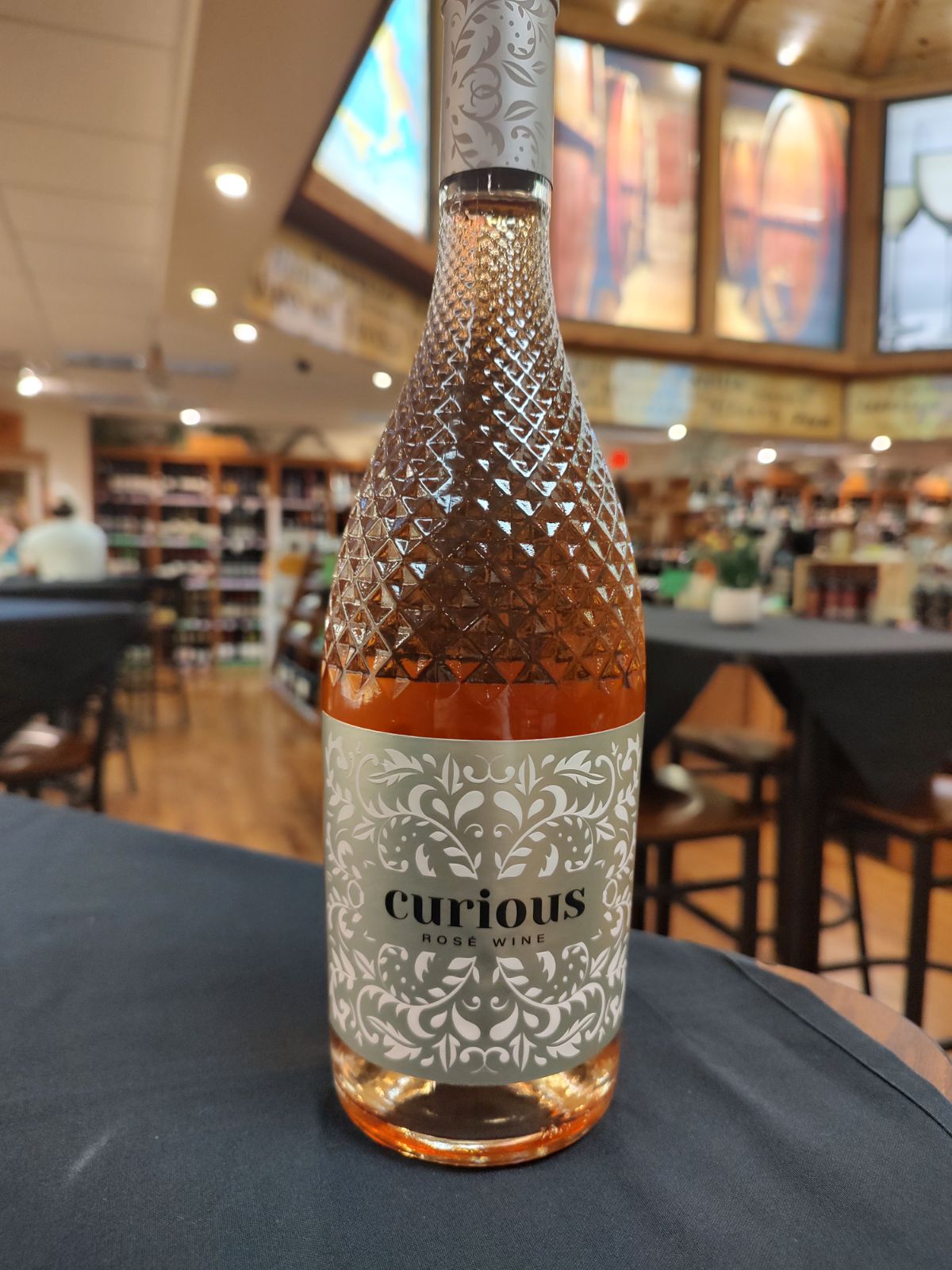
Curious is made with 50% tempranillo and 50% grenache. Tempranillo is a very popular black grape variety in Spain often used to make full-bodied reds. It’s the most widely grown variety in the country.
“The vast majority of rosés are either French or French style,” Jones said. “The French rosés are a little lighter and softer, I like this because it is fruiter, a little less tart. It’s not a normal rosé that people like. Light, soft, crisp, and fruit-forward. It’s off the beaten path.”
This wine pairs well with chicken, seafood and a variety of salads.
It’s a great value at $11.99 per bottle, he said.
Find it: Macadoodles, 1455 E. Independence St., Springfield; or visit Macadoodles' website
Christina at Mama Jean’s Natural Market
Amy Krieger, beer/wine/cheese coordinator at Mama Jean’s Natural Market, recommends Christina, an Austrian wine with a female winemaker.
“Female vintner Christina Netzl has been steeped in growing grapes and winemaking since a child, working on her family’s farm and vineyard,” Krieger said. “Her natural wines are all organic and organically farmed. They are low intervention (minimum sulphur) and are unfined/unfiltered. This rosé is lip-smackingly succulent with tasting notes of cherries and strawberries with elegantly smooth tannins.”
It is 100% Zweigelt grape.
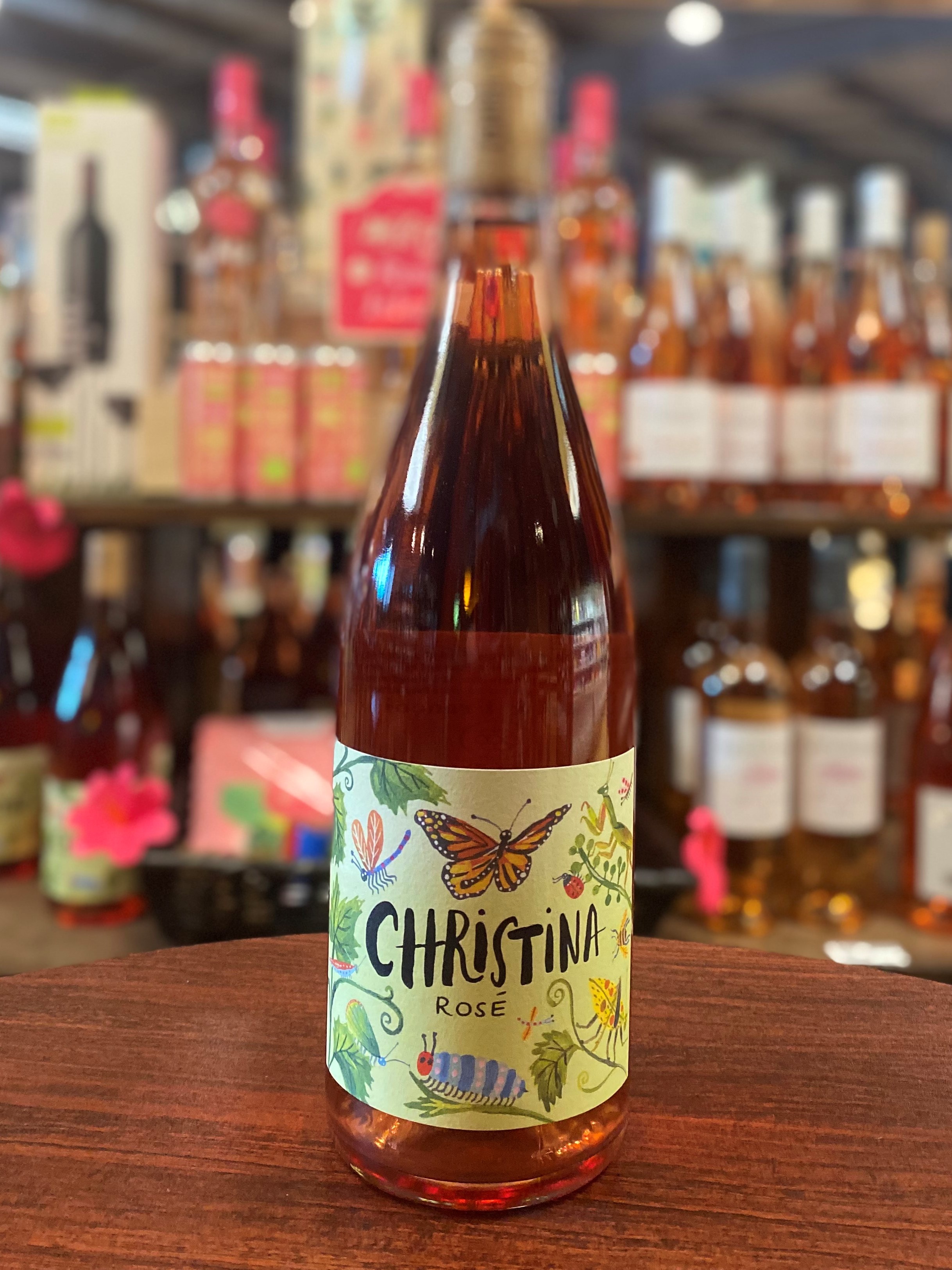
Zweigelt is a red grape widely grown in Austria. According to Austrianwine.com, this variety was developed in the 1920s by a professor who crossbred two other varieties and became popular after World War II.
Krieger said this wine pairs well with watermelon salad, smoked trout, and fresh cheeses such as burrata.
Price: $21.99.
Find it: Mama Jean’s Natural Market, 3530 E. Sunshine St. and 1110 E. Republic Road; or find Mama Jean's online
Liquid Geography at Cherry Picker Package & Fare
For those in the Rountree neighborhood, Hannah Mizer, wine manager at Cherry Picker Package & Fare, has a dry, Spanish Rosé you can score tonight on your way home: Liquid Geography. The label is a work of art.
“We sell it by the bottle for $15, that can be taken home or enjoyed on our patio,” she said. “It’s a wine that uses Mencía grapes and is dry with notes of strawberries and white pepper.”
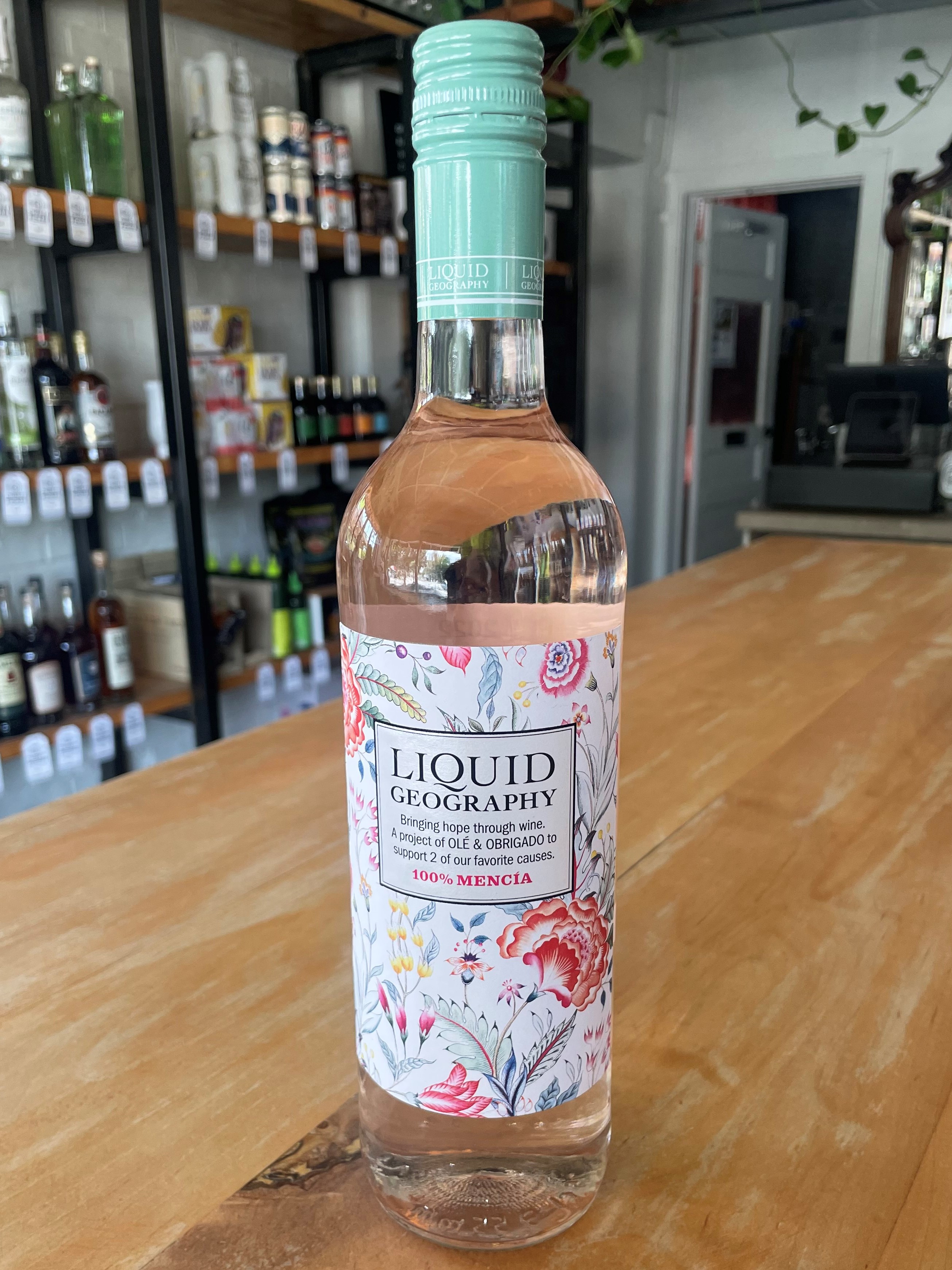
According to the wine maker’s website, it is made with Mencía grapes from 53-year-old vines in northwest Spain, a region with a wine history that dates back to Roman times. Mencía is a red grape that is indigenous to the area. This rosé is unoaked and is fermented in stainless steel vats.
The winemakers donate 50% of profits to Memorial Sloan Kettering Cancer Center to support cancer care, research and education, and Wheeling Forward to help those with disabilities experience life to the fullest. Talk about drinking for a good cause.
Mizer said the wine pairs well with pizza, white meats, and grilled vegetables.
Cost: $15
Find it: Cherry Picker Package & Fare, 601 S. Pickwick Ave., Springfield; or visit Cherry Picker Package & Fare's website
Cheers!


